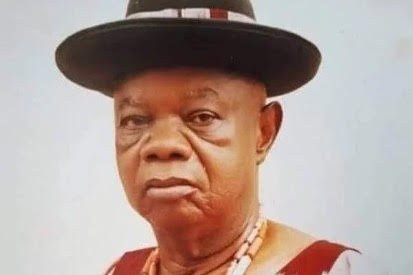Featured
Tinubu mourns ‘Gwo Gwo Ngwo’ singer Mike Ejeagha, 95
DDM News

President Bola Ahmed Tinubu has joined millions of Nigerians in mourning veteran folklorist and highlife musician Mike Ejeagha, who died on Friday aged 95.
Diaspora Digital Media (DDM) reports that the Enugu-born storyteller, best known for the evergreen hit “Gwo Gwo Ngwo,” spent more than six decades recording proverbs-laden songs that preserved Igbo oral history.
In a condolence message released on Saturday by presidential spokesman Bayo Onanuga, Tinubu praised the late maestro for using music to sustain the Igbo language and promote Nigerian unity.
The President said, “May the spirit and values of Gentleman Mike Ejeagha’s music continue to remind us that melodies can revive, heal, and redirect energy toward nation-building.”
He also commended Governor Peter Mbah of Enugu State for honouring Ejeagha during his lifetime, arguing that recognising cultural icons while they are alive encourages artistic excellence.
Born in 1930 in Obeagu, Enugu State, Ejeagha began performing professionally in the late 1950s, blending highlife rhythms with didactic folk tales delivered entirely in Igbo.
Music historians credit him with introducing the call-and-response “akụkọ n’egwu” style, in which short moral stories are sung between guitar interludes.
The National Archives and several universities have documented more than 300 of his compositions, preserving lyrics that remain reference material for students of African linguistics.
Ejeagha’s popularity entered a renaissance in the 2020s when “Gwo Gwo Ngwo” gained traction on TikTok and Instagram, exposing Gen-Z audiences to his witty use of proverbs.
Scholars note that many of his songs double as mnemonic devices for teaching children correct pronunciation and cultural etiquette.
Tributes have poured in from the Performing Musicians Association of Nigeria, the Copyright Society of Nigeria, and international ethnomusicologists who hail him as “the custodian of Igbo idioms.”
Tinubu concluded his message by praying for the repose of the musician’s soul and for comfort for the “family, friends, and countless admirers who now sing his praises in the past tense.”
As funeral arrangements unfold, cultural advocates urge state authorities to establish a folk-music institute in Ejeagha’s honour so that future generations can study the craft of the man affectionately called “Gentleman.”
For Diaspora Digital Media Updates click on Whatsapp, or Telegram. For eyewitness accounts/ reports/ articles, write to: citizenreports@diasporadigitalmedia.com. Follow us on X (Fomerly Twitter) or Facebook














